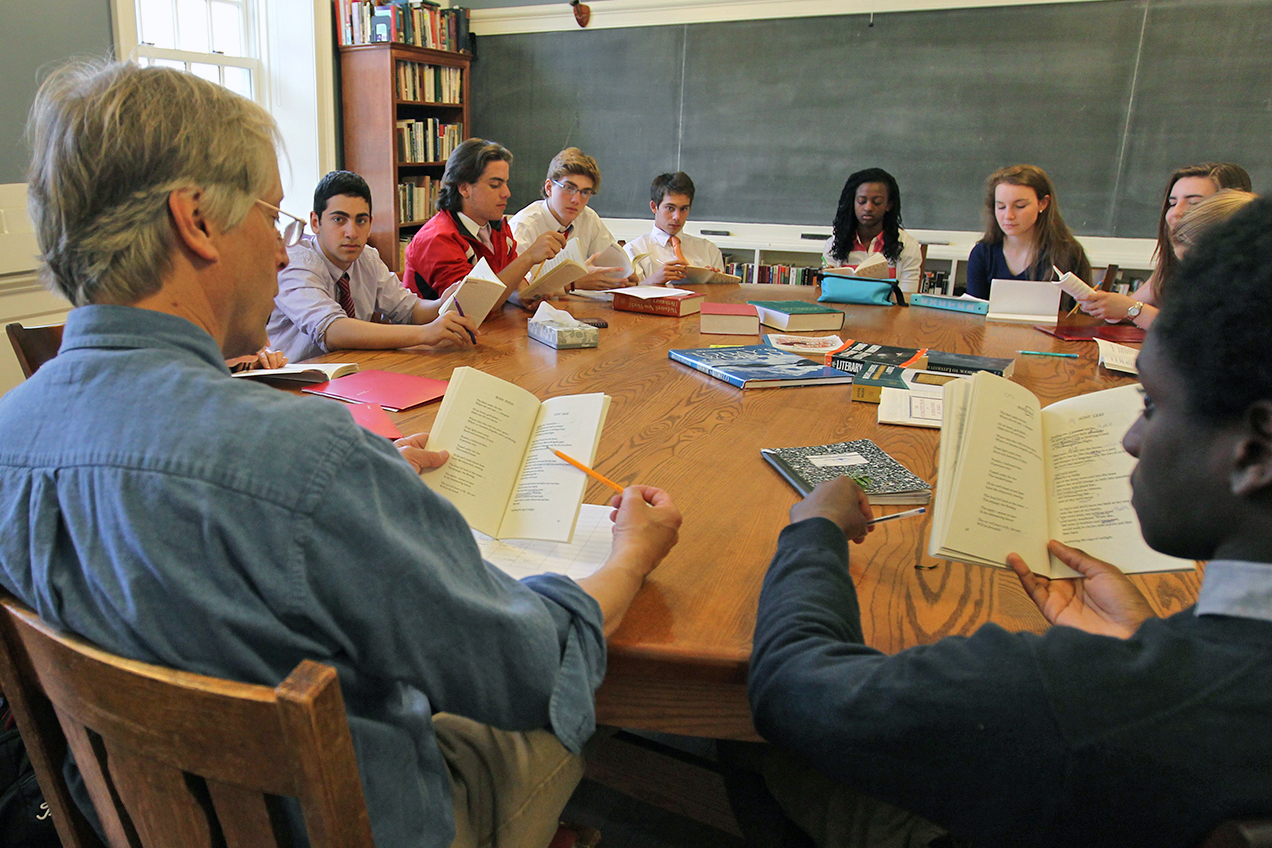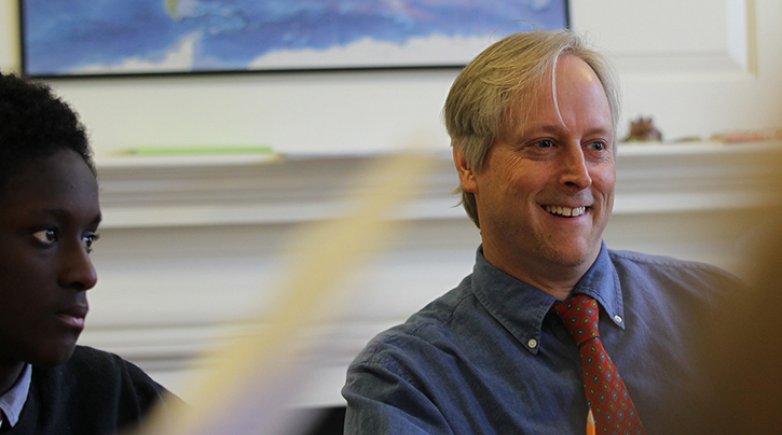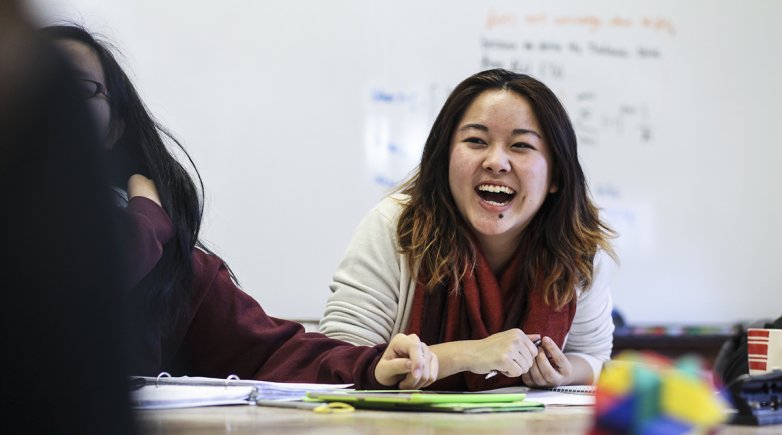An example is English 320, a course for lowers, created in collaboration with the Office of Multicultural Affairs to sharpen critical thinking around race and identity. In class, students write their personal histories and explore themes of race in literary works, including Shakespeare’s Othello.
To better support student instruction, faculty are examining these issues as well. Georgetown University associate professor Ricardo Ortiz has led English faculty discussions about how to teach race-related topics in literature, focusing on the unintended effects of assumptions in curriculum and developing coursework around race, ethnicity and privilege. Over the summer, instructors work together to explore new materials and initiatives, such as a new anti-racist writing workshop. “Our teachers are learning along with [our] students, ” Hawkins says.

Department quick takes
Visiting writers
More than 20 professional writers visit campus each year to deliver assembly talks or readings, and to meet with English classes. Recent visitors have included Pulitzer prize-winner and Lamont Poet Jericho Brown, whose readings and remarks electrified the assembly audience. Another speaker, Viet Thanh Nguyen, Pulitzer prize winning author of "The Sympathizer," shared his experiences growing up in California as a refugee and immigrant. His challenge to students to tell their own authentic stories as Americans resonated, and the Department of English now offers an elective focused on Nguyen’s teaching.
Faculty authors
Exeter’s literary tradition extends to its faculty. In class, students have direct opportunities to learn from instructors who are published authors and poets, including Erica Lazure, Matthew Miller, Alex Myers, Willie Perdomo, Ralph Sneeden and others. “It’s another way Exeter demonstrates its reverence for the written word,” says Hawkins.
Student writers
The department’s rigorous writing program culminates with Senior Mediations, an opportunity for seniors to share their personal narratives with peers and teachers. A selection of students are chosen to read their pieces aloud in Phillips Church. Having a voice in the community teaches independence and empathy. “We have expanded the Senior Meditation program into fall,” Hawkins says, to allow more students to partake in the experience. The collection of senior meditations is published into a book that is used by the English Department for class instruction.
Common read for new students
The English Department assigns to all preps and incoming lowers a book to read over the summer. For the first year of this program, they read “The Prince of Los Cocuyos,” a coming-of-age memoir written by presidential inaugural poet Richard Blanco. “The Poet X,” by Elizabeth Acevedo, was assigned the following year. The goal of the common reading is to create a sense of community and establish a foundation for discussion among students. Blanco spent a day at the Academy, visiting classes, speaking at assembly and meeting with affinity clubs as well as hosting a casual lunch conversation for students. Due to the pandemic, Acevedo will meet with students via Zoom.




